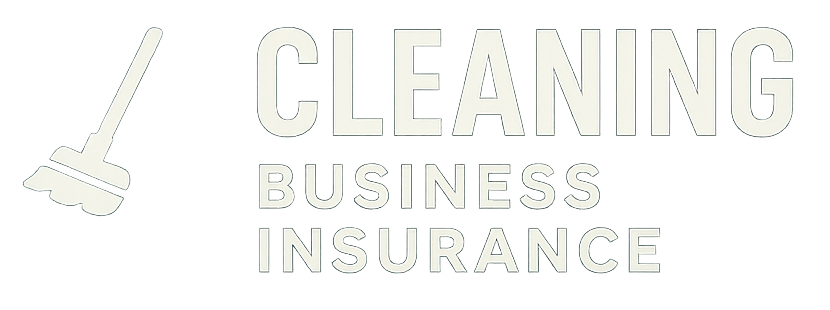For cleaning business owners, one of the most unexpected risks comes from within: theft or dishonesty by employees. Whether it’s missing cash, stolen client property, or misreported hours, employee dishonesty can create serious financial and reputational damage. For cleaning professionals in California, where residential and commercial cleaning demand is high, understanding insurance solutions that protect against these risks is crucial.
Understanding the Risks of Employee Theft in Cleaning Businesses
Cleaning businesses often operate in private homes, offices, and commercial properties, giving employees access to sensitive areas, valuables, and confidential information. While most cleaning professionals are trustworthy, even one dishonest employee can cause significant losses. Theft can range from small items like jewelry or electronics to larger property or cash misappropriation.
In addition to direct losses, employee dishonesty can lead to legal claims, strained client relationships, and a damaged reputation. In the competitive California cleaning market, trust is a critical factor. Clients often hire cleaners because of their reliability and professionalism. Even a single incident of theft or dishonesty can lead to loss of contracts, negative reviews, and long-term business impact.
Insurance solutions are designed to mitigate these risks. By investing in appropriate coverage, cleaning business owners can safeguard their finances and maintain client trust while ensuring their operations continue smoothly.
Employee Dishonesty Coverage: What It Is and How It Works
One of the most effective ways to protect against employee theft or dishonesty is through Employee Dishonesty Coverage. This type of insurance is sometimes included in a commercial property or business owner’s policy, but it can also be purchased as a standalone policy depending on your needs.
Employee dishonesty coverage protects your cleaning business if an employee intentionally steals money, property, or other assets. This may include cash from client sites, equipment, or even personal items from homes where cleaning services are performed. Policies typically require proof of loss and may have limits based on the number of employees or total coverage amount.
For cleaning businesses, this insurance provides peace of mind. Knowing that theft-related losses are covered allows business owners to focus on growing their company without the constant worry of internal theft. It also helps maintain client trust, as you can assure clients that losses are addressed promptly if an incident occurs.
Bonding and Janitorial Bonds: Protecting Clients and Your Business
Another critical tool for combating employee dishonesty is bonding, often referred to as a janitorial bond in the cleaning industry. Bonds act as a guarantee to clients that your business will financially cover losses caused by theft or misconduct by your employees.
When a cleaning company is bonded, clients have added confidence in your professionalism. In California, many commercial properties and property management companies require bonded cleaners before allowing access to sensitive areas. A janitorial bond not only protects clients but also protects your business by providing a structured claims process.
A bond differs from insurance in that it is a guarantee rather than a risk-transfer mechanism. However, when used alongside insurance, it offers comprehensive protection against both internal and external risks. By obtaining the appropriate bond, cleaning companies demonstrate reliability and commitment to ethical operations.
Implementing Internal Controls to Reduce Risk
While insurance and bonds provide financial protection, proactive measures to reduce theft or dishonesty are equally important. Implementing internal controls within your cleaning business can minimize the likelihood of losses.
Some effective strategies include:
Employee Screening: Conduct thorough background checks before hiring new staff, focusing on previous employment and criminal history.
Clear Policies: Establish clear codes of conduct and written policies regarding theft and property handling.
Supervision and Monitoring: Use checklists, periodic inspections, and supervisory oversight to ensure employees follow procedures.
Segregation of Duties: For businesses handling cash or valuable equipment, ensure no single employee is solely responsible for high-risk tasks.
By combining insurance, bonding, and strong internal controls, cleaning business owners can significantly reduce the risk of employee dishonesty while demonstrating professionalism to clients.
Claims Process and Recovery
Even with preventive measures in place, incidents may still occur. Understanding how the claims process works is essential for timely recovery. When a loss occurs due to employee theft, the business owner should report the incident promptly to the insurance company or bond issuer. Documentation, including proof of loss, incident reports, and evidence of employee misconduct, is typically required.
Insurance providers will assess the claim, determine coverage based on the policy limits, and issue reimbursement accordingly. This process ensures that your business can recover financially while minimizing the operational disruption caused by theft or dishonesty.
Conclusion
For California cleaning businesses, theft and employee dishonesty are risks that cannot be ignored. By investing in employee dishonesty coverage, janitorial bonds, and implementing strong internal controls, cleaning business owners can protect their finances, maintain client trust, and ensure smooth operations. While preventive measures reduce the likelihood of incidents, insurance and bonding provide the safety net necessary to handle unexpected losses professionally.
By addressing these risks proactively, cleaning companies can focus on delivering exceptional services to clients while safeguarding their most valuable assets—their business and reputation.
